For a long time, cycling has been linked to a wide range of
positive, liberating, emotions, including joy, excitement, and contentment.
Have we, however, taken a moment to consider what cycling means to persons with
physical and developmental
disabilities?
اضافة اعلان
In the quest to ensure that persons with special needs have
a safe, stable and stylish recreational cycling experience, a Jordanian social
enterprise,
Jo Theeb, had the drive to strike a new niche by customizing bikes,
providing them with an adaptive form of mobility that was previously unavailable.
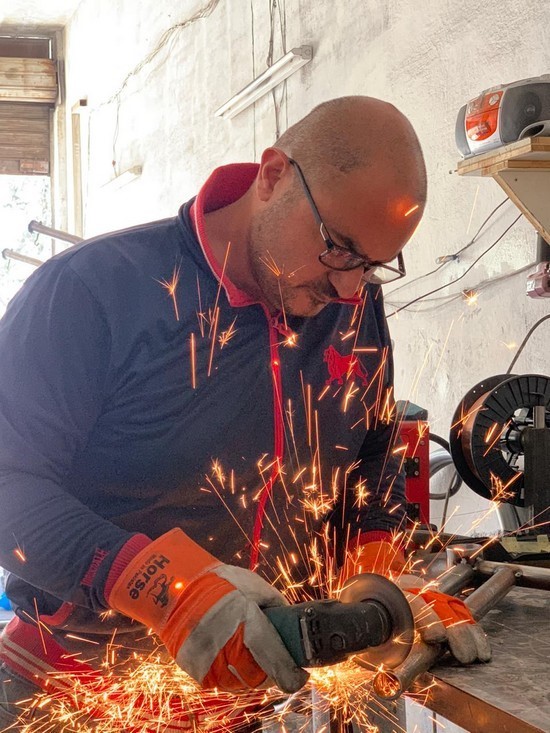 Jo Theeb does not only customize bikes, it also exposes the nuanced and under-reported stories in which individuals fight and excel armed with nothing more than faith and conviction. (Photo: Handout from Jo Theeb)
Jo Theeb does not only customize bikes, it also exposes the nuanced and under-reported stories in which individuals fight and excel armed with nothing more than faith and conviction. (Photo: Handout from Jo Theeb)
Jo Theeb’s concept goes back to 2010 when Khaled Al-Omar, a
45 year-old father of three and the entrepreneurial mastermind behind Jo Theeb,
went cycling from the Dead Sea to Bethany Beyond the Jordan. Omar was diagnosed
with palsy in his left leg, which is the reason a standard bike would not work
for him.
“I kept longing for a safer bike. Then, one day, I was
watching a movie and such a bike appeared in a scene. I went back and watched
it again. I followed the lead and looked up a processor shop in LA. I initiated
communication with the shop through emails, but found the bikes to be too
pricey; $5,000 was the bare minimum, with the possibility of additional
expenses for customization, such as color changes or add-ons such as handle
bars,” Omar told Jordan New.
Having a background in
DIY handy work helped him.
“I dropped out of school in my junior year and worked at
different workshops: carpentry, blacksmithing, antiques, etc. All those skills
would accumulate in the bike of my dream,” he elaborated.
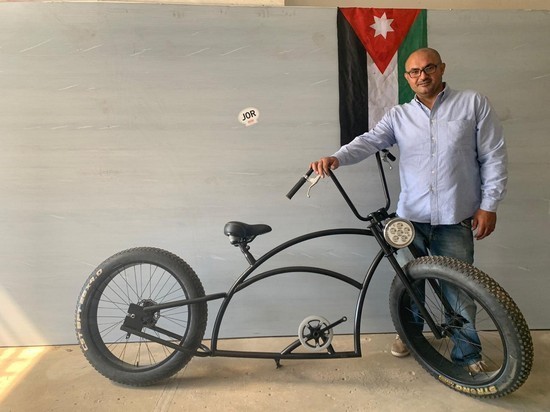 (Photo: Handout from Jo Theeb)
(Photo: Handout from Jo Theeb)
It took him eight months to create the first model. He
started adjusting and upgrading the model using motors and lithium batteries.
Three months later, the first fully functioning customized e-bike traveled a 40
kilometers journey. He named it “Theeb”.
Omar made the decision to commercialize his model for as
little money as possible. Then he began creating a line of models with a
variety of positioning and gear options, each tailored to the precise
requirements of the individual orders he was receiving.
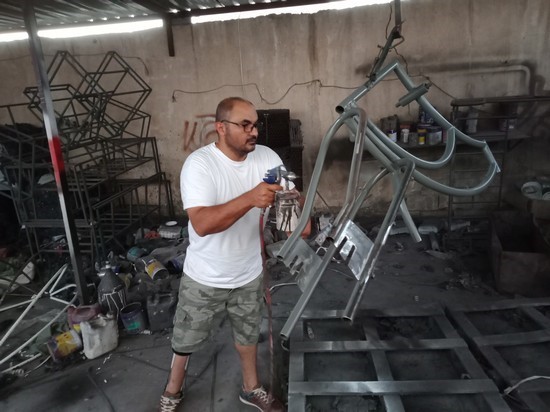 (Photo: Handout from Jo Theeb)
(Photo: Handout from Jo Theeb)
According to him, he had to finance Jo Theeb out of his own
pockets, with loans, until he received funding from the European Union through
Oxfam’s project JOin UP. It enabled him to rent a workshop, hire two full-time
employees and mold his idea into a fully functional thriving business.
Nowadays, customers who want to get a customized bike have
to fill out a lengthy and comprehensive form that includes the type of
disability as well as the rider’s very accurate and precise body measurements.
Then there are medical discussions with physicians, and only after that does
the design process begin.
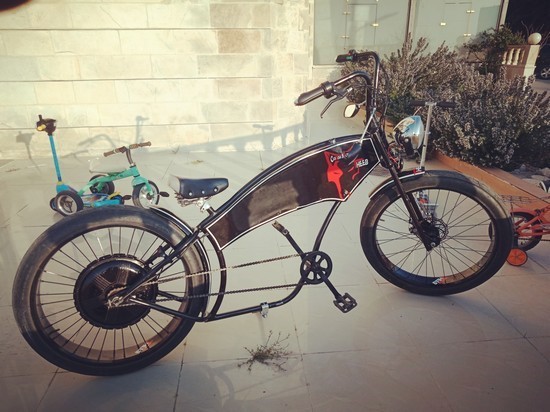 (Photo: Handout from Jo Theeb)
(Photo: Handout from Jo Theeb)
“We have never turned away a customer, no matter how
difficult the case is, whether it is a case of cerebral palsy, individuals
recovering from tendolysis that requires cycling to stimulate the brain, or
conditions where one limb is longer than the other.
“Adaptive bikes are powerful therapeutic tools that can
assist riders improve their strength, endurance, balance, and coordination.
Other therapeutic benefits are expanding the range of motion, enhancing motor
planning skills, reciprocal leg movement, and general fitness” Omar added.
Children with physical disabilities are of special interest
for Jo Theeb, as riding a bike does not come easy for them. Playing with their
peers, looking good and fitting in easily is a basic right and a simple dream
no child should be deprived of.
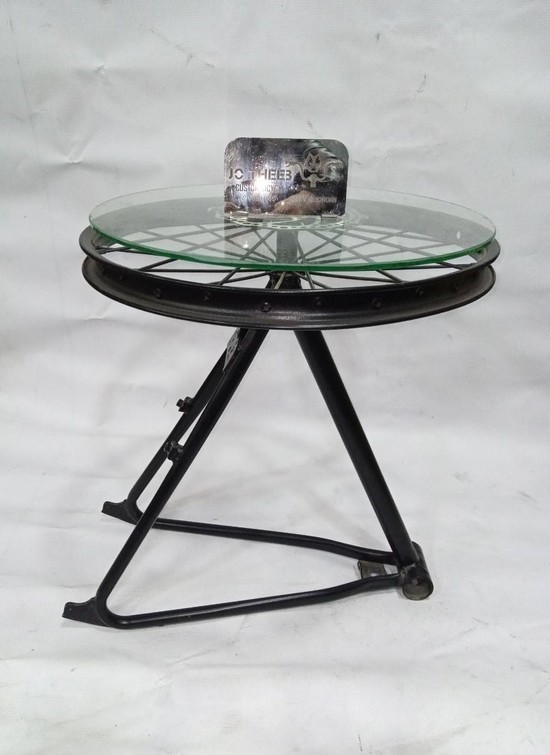 (Photo: Handout from Jo Theeb)
(Photo: Handout from Jo Theeb)
“The gratitude of the parents eclipses all the challenges I
might face. When they tell me that I am a role model for their kids or they
wish that their kids grow up to be like me, it lightens my heart,” said Omar.
While disability is still a thorny issue, Omar believes that
“we need to tilt our heads to see that the cup is not half empty but half full.
People should stop using disability as an excuse and wait for someone else to
come to the rescue. Taking initiative is what will take you the extra mile”.
While many think and dream of a more accessible Jordan,
there are those who work for it. Jo Theeb does not only customize bikes, it
also exposes the nuanced and under-reported stories in which individuals fight
and excel armed with nothing more than faith and conviction.
Read more Lifestyle




